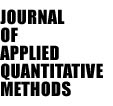 |
|
|||
Comparing Organizational Learning Rates in Public and Non-Profit Schools in Qom Province of Iran
Hassan ZAREI MATIN
Gholamreza JANDAGHI
Boshra MOINI
Keywords
learning organization, organizational learning, public+schools, non-profit+schools
Abstract
Regarding the increased complexity and dynamics of environmental factors and rapid changes, traditional organizations are not longer able to match with such changes and are destroying. Hence, as a tool for survival and matching with these changes, learning organizations are highly considered by many firms and corporations. What you are reading, is a summary of theoretical basics and findings of a research about the rate of organizational learning of schools. Present research is based on reviewing the rate of organizational learning of public and non-profit high schools. To obtain the research aims, this hypothesis was considered: “there is a difference between the rate of organizational learning of public and non-profit schools.” To collect the data and find the characteristics of learning organization (high school) library method and to review the rate of organizational learning, a structured questionnaire (after determining the reliability and validity) were utilized. Collected data were analyzed by using descriptive statistical method including frequency indices, frequency percent, mean and inferencial statistics such as Mann-Whitney test. Findings of Mann-Whitney test show that there is a meaningful difference between the rate of organizational learning of public and non-profit schools: “in all achieved characteristics, the rate of organizational learning of non-profit schools is more than public schools.”
(top)

